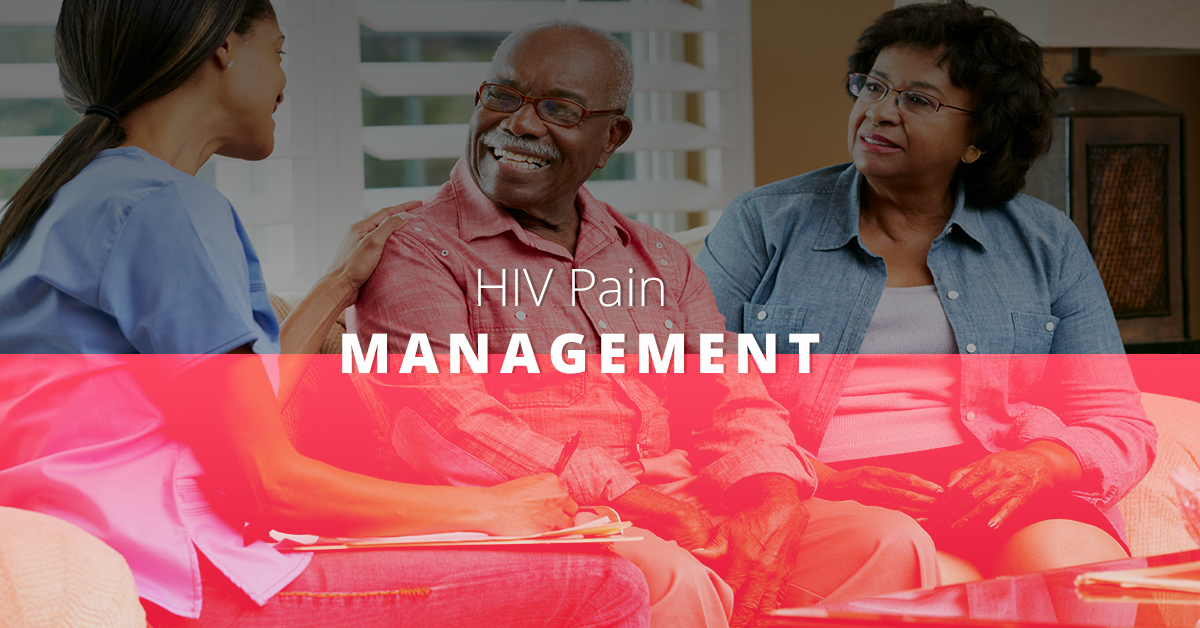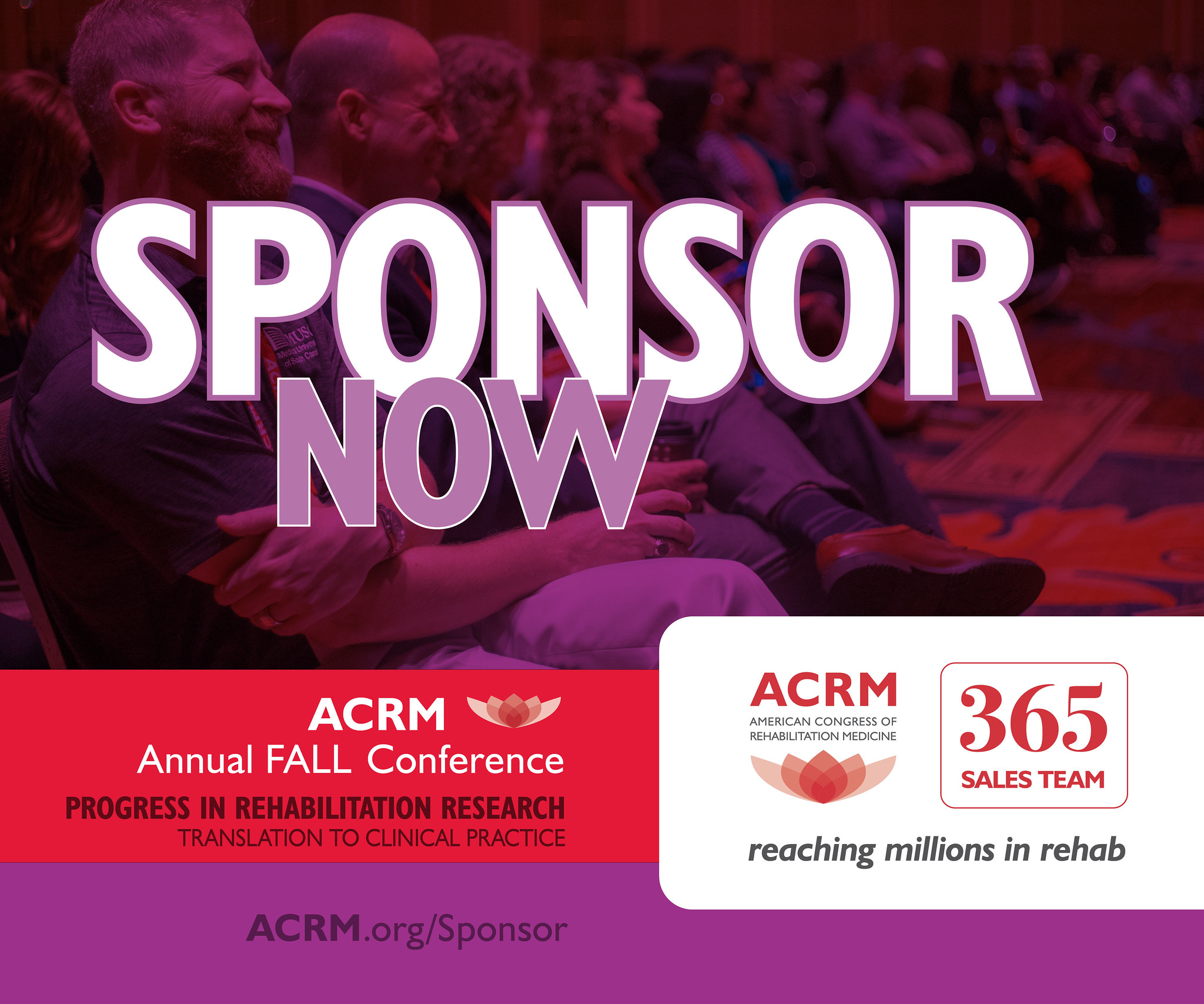If you’ve ever had a headache or broken a bone, you know what pain feels like. But over time, the migraine goes away and the bone heals and you can go on living a mostly pain-free life. But in the case of HIV patients, 85 percent struggle with chronic pain that is with them day after day. According to an article from Pain Medicine News (PMN), there are new guidelines that state everyone should be screened for chronic pain. Those diagnosed with chronic pain should have a variety of options for how to deal with that pain.
 At ACRM, we are passionate about gaining knowledge through rehabilitation research so that we can better treat and care for people who struggle with pain, disease, and many other things. It is our mission to bring people together who want to share their research with nurses, clinicians, and physicians so that they have the knowledge to improve their treatment and therefore, the patient’s quality of life. It’s guidelines like the ones released by PMN that can inform and pioneer new ways of treating pain.
At ACRM, we are passionate about gaining knowledge through rehabilitation research so that we can better treat and care for people who struggle with pain, disease, and many other things. It is our mission to bring people together who want to share their research with nurses, clinicians, and physicians so that they have the knowledge to improve their treatment and therefore, the patient’s quality of life. It’s guidelines like the ones released by PMN that can inform and pioneer new ways of treating pain.
The article goes on to talk about how there should be multiple people involved in HIV pain management, including pain specialists, psychiatrists, physical therapists, and pharmacists — a discipline that only had a small part in the development of the guidelines. Because HIV patients take a variety of drugs to treat the disease as well as mitigate pain and possibly even help with depression or diabetes, it is essential that a pharmacist is involved to cut out the chance of dangerous drug interactions and side effects.
One side effect that the article mentions is that when a drug that is meant to manage pain is prescribed, the drug can “decrease the blood levels of the antiretrovirals.” When this happens, there is a “higher chance of the ART [antiretroviral therapy] becoming resistant to the drugs.” This can also cause levels of certain drugs to increase, such as methadone — an opioid that is used to treat pain.
It’s instances like this that make it crucial for physicians to be able to consult with a pharmacist.
While the guidelines may lack an emphasis on having a pharmacist’s input, it does advise that everyone with HIV undergo a screening, which uses two questions:
- How much pain does the patient have during a week.
- Does the patient have pain that lasts longer than three months.
When this simple screening is completed, the patient then undergoes an evaluation, including physical exam, psychosocial evaluation, and diagnostic testing. Pain is often neuropathic (inflammation or injury of the central or peripheral nervous system) or nonneuropathic (musculoskeletal, back or joint pain).
There are several methods of pain management, including opioid type drugs and alternative treatments. Alternative treatments include cognitive-behavioral therapy, yoga, physical and occupational therapy, and acupuncture. If opioid drugs are used, they should be prescribed carefully due to opioid abuse.
The guidelines were developed by a group of panelists including HIV experts, substance abuse, pain, psychiatry, palliative care, and pharmacology experts. This range of experts is what ACRM is all about.
At our upcoming rehabilitation research conference, ACRM wants to bring together people from a range of disciplines who are passionate about improving the quality of life for HIV patients, and many other people are who going through rehab. Pain management is just one of the disciplines we want to focus our rehabilitation research on. Others include:
 Brain Injury
Brain Injury- Cancer Rehabilitation
- Clinical Practice
- Complementary, Integrative Rehabilitation
- Geriatric Rehabilitation
- Health/Disability Policy, Ethics, Advocacy
- International
- Limb Restoration Rehabilitation
- Measurement
- Military and Veterans Affairs
- Neurodegenerative Disease (e.g., MS, Parkinson’s disease)
- Neuroplasticity (includes neuroscience)
- Pain
- Pediatric Rehabilitation
- Spinal Cord Injury
- Stroke
- Arts & Neuroscience
- Technology (e.g., prosthetics/orthotics, robotics, assistive technology)
If you are a nurse, psychologist, clinician, pharmacist, or any other type of health or medical professional, we want to see you in Dallas from September 30th to October 3rd, 2018. It may still be a couple months away, but ACRM wants you to make this conference, and helping find better treatment plans and rehabilitation methods, a priority. We care deeply about the health and quality of life of people who are recovering from stroke, cancer, brain injury, and finding ways to manage their pain.
However, we need your help. Without your rehabilitation research, deep curiosity, and passion for problem-solving, we can’t fully help the patients who need help most. If you have developed research of your own, we want to read it! If you want to increase your knowledge and improve your skills in your area of expertise, we want you to join us for our rehabilitation research conference! Early bird registration rates are about to become available, so log in now so you can be notified.
If you are interested in spending a few days networking, gaining knowledge and experience, join ACRM and other medical professionals for a conference that is sure to present some groundbreaking rehabilitation research.











